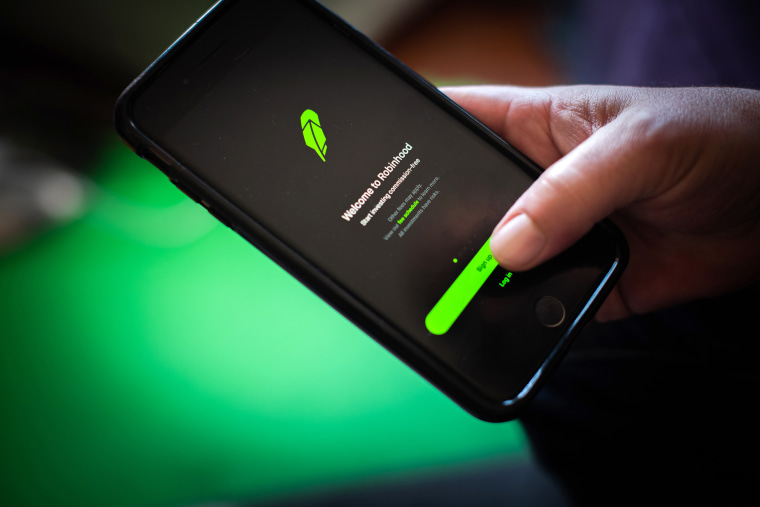Some fintech apps try to rein in addictive components to investing, but face their own problems.

Jan. 30, 2021, 6:00 AM EST
By Cyrus Farivar
While the broader public may have gotten its first glimpse this week of the troubling and addictive nature of trading apps like Robinhood, gambling experts, finance watchers and even rival trading apps have long been thinking about how to address these problems.
“The online day trader with problems is indistinguishable from the online gambling addict,” said Keith Whyte, the executive director of the National Council on Problem Gambling, pointing to graphics like the iconic green confetti that displays on a user’s phone when a Robinhood trade executes. “A lot of this is directly taken from the user experience of casinos: It encourages immediacy and frequent engagement.”
Robinhood declined to comment directly on the app’s design elements that critics have said incorporate gambling-like features.
“We designed Robinhood to be mobile-first and intuitive, with the goal of making investing feel more familiar and less daunting for an entire generation of people previously cut out of the financial system,” emailed Nora Chan, a Robinhood spokeswoman.
But industry experts say Robinhood’s addictive elements have been such a well-known problem that rival startups, like Public and Titan, have been casting themselves as abbreviated or even outright opposite versions of Robinhood. Both companies said they hope to use different kinds of design choices to nudge their users in a more thoughtful direction.
Titan co-CEO Joe Percoco said in an email that his company is the “polar opposite of Robinhood,” likening inexperienced Robinhood investors to hopping into a “fast new car, without driving instructions.”
“Robinhood is designed and makes money based on clients trading addictively,” he wrote. “This is horrific.”




